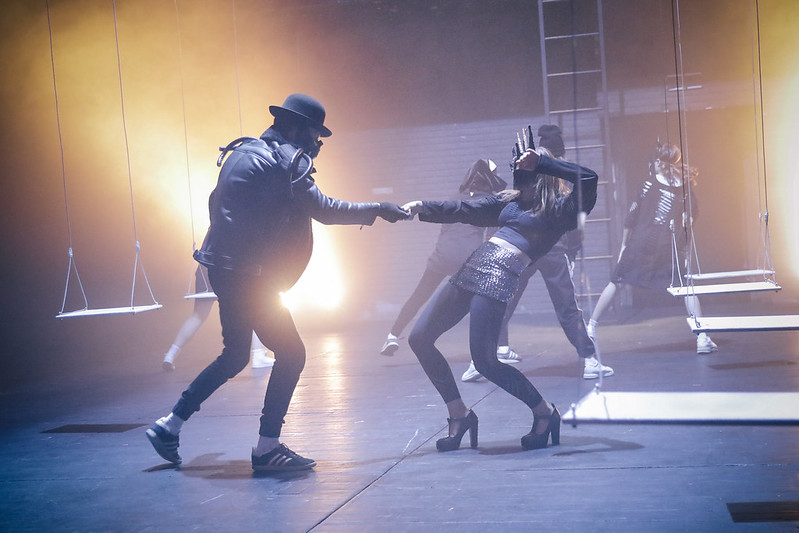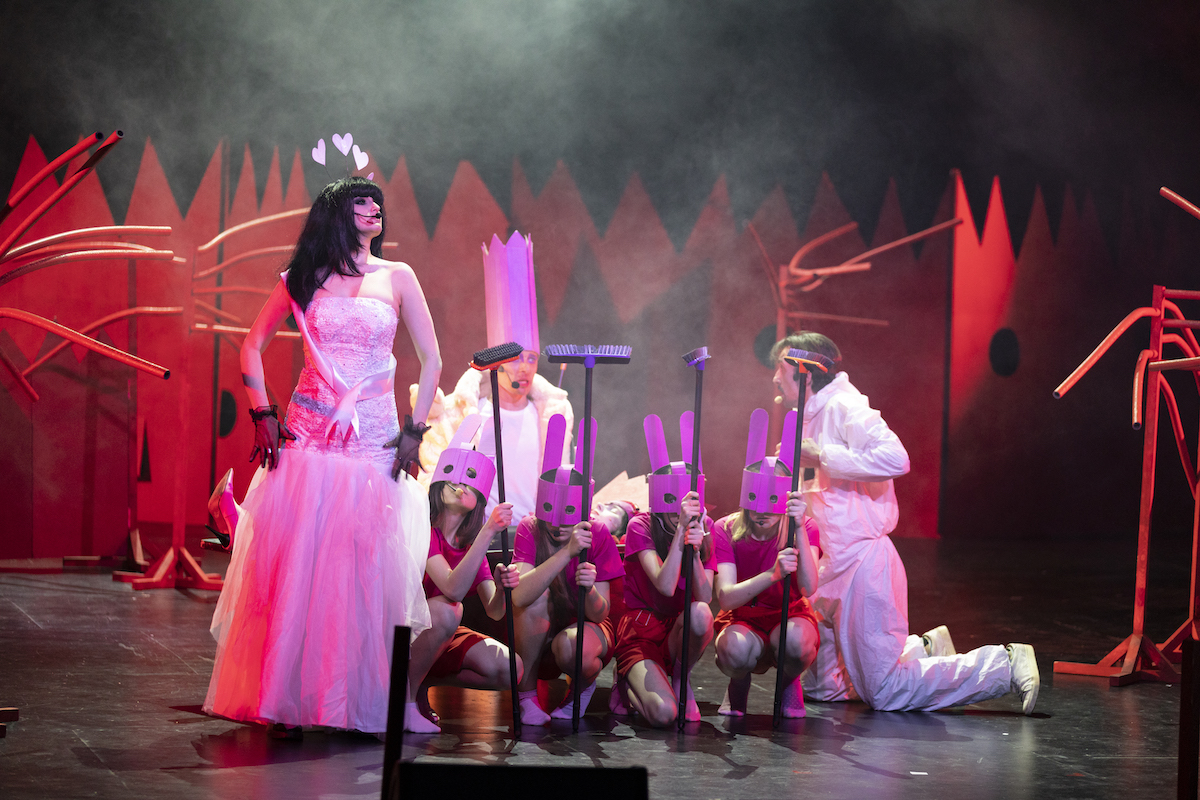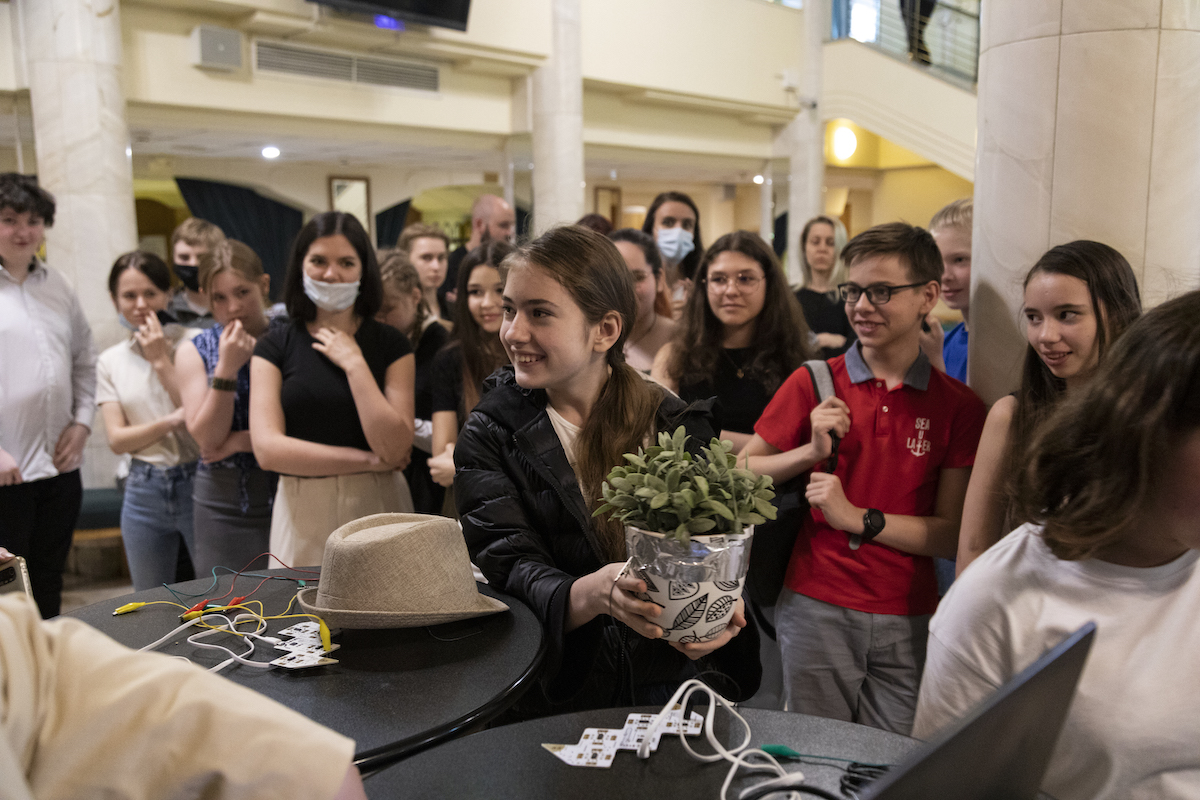Skoltech students teamed up with composers, playwrights, stage directors, scenic designers, and artists within the CoOPERAtion Laboratory 2021 project to create several chamber science operas that will be presented Oct. 31 at Novaya Opera.
When creating the operas, the teams looked for intersections between art and science, focusing on frontier areas of knowledge: information and energy-efficient technologies, biotechnology, and neuroscience. A scientific idea, fact, or knowledge-intensive technology based on a strong research foundation and new scientific discoveries served as the starting point for each of the science operas, providing them with a meaningful structural “backbone” and tying together the team’s creations. Art plays on human imagination and emotional intelligence while using its inherent creative techniques to take a new look at science and endow it with aesthetic value and emotional depth while presenting its achievements and discoveries in the overall social and human context without misrepresenting or simplifying them. The lab’s operas carry an integral, accurate, and significant message for modern science and art.
The “Signal Cascade” micro opera is about biological processes that occur inside living organisms at different times. “Intra- and intercellular signal transmission, interactions between biomolecules, and the folding of proteins have a beauty to them, whether life-affirming or tragic. We encourage our audience to brush aside the anthropocentric approach to nature and listen to their inner micro universe or that of other living organisms,” Skoltech PhD student Anna Rybina explains. “Working in a team of inspired and talented people helped me take a fresh look at my research, identify new tendencies, and rethink many familiar things.”
“Chaosmos” (a portmanteau of “chaos” and “space”) addresses ocean pollution by microplastics and puts forth a concept of decomposition as a stepping stone to rebirth and a new order of things. PhD student Ekaterina Agafonova and research engineer Marsel Ishimbaev note that the project reaches out beyond the comfort zone and helps foresee organizational and communication challenges.
“In our case, ‘hopera’ is formed from ‘hope’ and ‘opera,’ as opposed to ‘hip-hopera.’ The show starts by displaying fragmented particlelike rhythmic patterns and evolves into an organized stage act. The playwright wrote a two-part libretto that the composer expressed in point music, or pointillism. Our opera is mostly about how man relates to music, as best seen in perfectly synchronized heartbeat and music rhythm. In the first act, a cube filled with chaotically moving polystyrene foam, a symbol of global chaos, illustrates the bond between man and music. In the second act, patterns appear in the cube as the dancers begin to move in sync with each other and the music,” Ekaterina explains.
“Yura” brings into question the modern society’s obsession with tolerance and technology. Skoltech PhD student Alexandra Razorenova served as the brains behind the technical content: She designed a wearable device with a camera that captures an actor’s face and developed an algorithm that tracks the actors’ emotions during the opera.
“This is the first time I take part in such a large cross-disciplinary project and design my own device from scratch. Creating a theater production and following through a research project from grant application to publication have a lot in common in terms of timeline, scope, and effort,” Alexandra adds.
Nikita Sharaev, a research intern, was part of the team that created the “Sophophora” opera. Its title, which translates from Greek as “carrier (phora) of wisdom (sophos),” denotes a subgenus of the genus Drosophila that includes Drosophila melanogaster, commonly known as the fruit fly, which is the most popular biological model widely used in research experiments to study the nervous system and various neurodegenerative diseases.
“We used the similarities in the progression of Alzheimer’s disease in humans and flies to offer new insights into the disease itself and its impact on patients and their environment. I tried to tell the team as much as I could about my research and experience regarding Drosophila and its peculiarities. In our opera, we take an unusual angle by inviting the audience to look at the ‘human’ disease through the eyes of a lab fly. This project with its new perspective on the understanding of the world around us was a truly fascinating experience,” Nikita notes.
The “Get Out of the Cell” opera reflects on the possibility of reprogramming mature cells into embryonic stem cells. “We tried to look at the dichotomy of chaos and order using a living organism and show that seemingly random processes obey some strict laws. We tried to visualize science while endowing it with aesthetic value and looking at it through the lens of universal truths. I hope that we have succeeded in getting across a meaningful message for modern art and science,” PhD student Karina Karneeva comments.
The other operas feature equally fascinating phenomena, such as seismicity of the Earth (“Immersion”) and the human voice with its unique physical parameters and effects on the personality and environment (“Vox”). The “Log” explores the nature of experiment and scientific knowledge in terms of an exponential growth of ways of understanding our inner selves and the world around us.
The project’s technology partners include Nvidia, Huawei, and VSG Sound. Nvidia provided Jetson models for “Yura” and Huawei supplied bracelets and gadgets for “Chaosmos.”
The CoOPERAtion Laboratory 2021 project, supported by the Mikhail Prokhorov Foundation, the Moscow Department of Culture, and the Union of Composers of Russia, is based at the Kolobov Novaya Opera Theater in Moscow. The Skolkovo Institute of Science and Technology (Skoltech) and the British Higher School of Art and Design are partners of the project.
Contact information:
Skoltech Communications
+7 (495) 280 14 81



